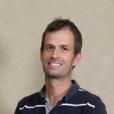Action plan to fight CKDu
Australia and Sri Lanka develop action plan to fight Chronic Kidney Disease killer

Showing 881 - 900 of 1192 results
Australia and Sri Lanka develop action plan to fight Chronic Kidney Disease killer
Paper on redefinition of the kilogram receives international award
Accelerator technique used in pioneering biomaterials research led by the University of Sydney.
Australia assists in the collection of marine sediments to support contaminant quality control measures by IAEA.
The Government is safeguarding Australia’s sovereign capability to produce vital nuclear medicines by launching a $30 million project to design a new world-leading manufacturing facility to be built at Lucas Heights in Sydney.
Advances in radon measurement technology by ANSTO researchers over the past decade have enabled the improved characterisation of the composition of pristine air masses that reach Antarctica.

Project members of Magnetism.

Role at ANSTO
ANSTO is supporting the introduction of particle therapy, an advanced form of radiation treatment for difficult-to-treat cancers, in Australia
ANSTO among collaborators to major study of greenhouse gases.
Million year lag time in transport of sediment in Murray Darling River Basin system.
Research on lunar meteorite and moon crater analogues coincides with Science Week.

Radioisotope tracing technique are used to understand the uptake of contaminants, and nutrients, bioaccumulation, by aquatic organisms and terrestrial plants.

Jake studied Mechatronic Engineering at UNSW, completing a thesis on the development of a stair climbing wheelchair.